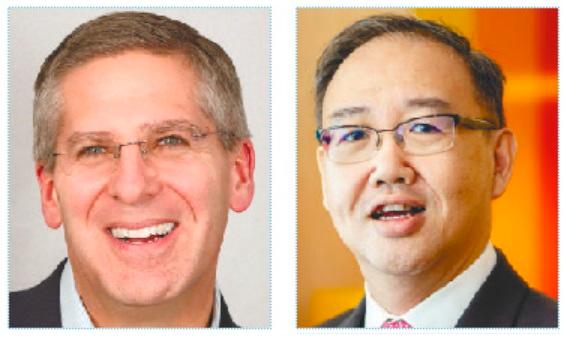PETALING JAYA: Almost half (43%) of Malaysia-based CEOs say they do not believe their organisations will be economically viable in a decade if they continue on their current path, according to PwC’s 27th Annual Global CEO Survey (Malaysia).
The survey polled 4,702 CEOs across 105 countries and territories from Oct 2 through Nov 10, 2023. In the Asia-Pacific region, sentiments about the global economy in 2024 are divided, with 45% anticipating a decline and 40% expecting improvement.
Malaysia-based CEOs are slightly more optimistic about the economic outlook this year compared with last year. Yet, confidence is fragile as megatrends including technological disruption and the climate transition converge. Facing an uphill battle, 93% of Malaysia CEOs report taking at least some steps to change how they create, deliver and capture value over the past five years.
Over that time frame, 77% took at least one action that had a large or very large impact on the company’s business model.
While CEOs are taking action, they are faced with a number of challenges with 70% citing the lack of skills in their company’s workforce and two-thirds (64%) point to the lack of technological capabilities. This suggests that the workforce remains at the centre of reinvention, in an increasingly digitalised economy and sectors where digital transformation is pivotal.
While economic outlook pessimism has reduced among Malaysia CEOs, concerns about macroeconomic volatility (30%) and inflation (27%) persist in the next 12 months. Notably, cyber risks have heightened among Malaysia CEOs, rising from 11% to 23% in the past year. This suggests an increasing importance of cybersecurity in business innovation and reinvention in the country.
Optimism surrounds the adoption of GenAI, but it presents a dual challenge. Cybersecurity risks are a substantial concern for CEOs in Malaysia (73%), exceeding their global (64%) and Asia Pacific (49%) counterparts’ averages when assessing GenAI-associated risks. However, 41% of Malaysia CEOs foresee substantial impacts on their companies, workforce and markets within the next three years.
In particular, 82% anticipate the need for workforce skills acquisition in response to GenAI advancement, surpassing global (69%) and Asia Pacific (76%) figures. Despite this awareness, half of CEOs in Malaysia surveyed admit to not having adopted GenAI across their companies in the past 12 months.
In terms of climate change, CEOs in Malaysia show some progress in decarbonisation efforts – 85% and 73% are currently in progress or have completed energy efficiency improvements and innovation of new, climate-friendly products, services or technologies, respectively. This is higher than the Asia Pacific average at 68% and 51% respectively.
PwC global chair Bob Moritz said, “This year’s data suggests a high degree of CEO uncertainty ahead, but CEOs are taking action. They are transforming their business models, investing in technology and their people, and managing the risks and opportunities presented by the climate transition. If businesses are to thrive over the short and long-term, build trust, and deliver sustained and long-term value, they must accelerate the pace of reinvention.”
PwC Malaysia managing partner Soo Hoo Khoon Yean said that amid the optimism surrounding global economic prospects, the delicate confidence among CEOs show that the continued viability of the organisation rests on the efforts of all layers of business.
“The stakes are high: the reinvention mandate needs to consider technological disruption in the form of GenAI and climate change challenges among other issues. The answers to these megatrends may not yet exist. This opens up meaningful opportunities and collaborative ecosystems for public-private partnerships to tackle complex societal challenges like cybersecurity and workforce skills needs.”









